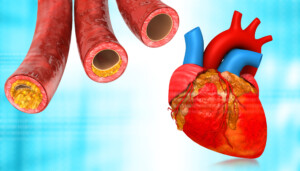
Does a zero calcium score automaticlly mean you’re off the hook for dangerous soft plaque buildup in your arteries?
Though coronary calcium scoring is an accurate indicator of the presence of heart disease (varying degrees correspond to the calcium score number), it’s still possible for a person with a zero calcium score to also have dangerous soft (non-calcified) plaque buildup.
“The CT calcium score measures calcified plaque,” says Nieca Goldberg, MD, medical director of NYU Women’s Heart Program and radio show host of “Beyond the Heart” on Doctor Radio SiriusXM.
“Calcified is stable plaque, less likely to break and start the process for a heart attack. Soft plaque is more fragile and likely to crack and cause a heart attack.
“Studies have shown that higher levels of calcified plaque also indicate that soft plaque is present.
“That is why we treat people with elevated calcium scores with statin therapy to stabilize plaque and lower cholesterol, and aspirin to prevent blood clots.
“A zero calcium score means low risk, not no risk, accounting for the possibility of soft plaque.”
A report in Diagnostic and Interventional Radiology (2013; 19:111–118) details an investigation into the presence of soft plaque.
This doesn’t mean that if you just celebrated learning that your calcium score is zero, that you should now start worrying that your score is meaningless.
Brief Recap
A score of over 100 means you probably have coronary heart disease. I had my calcium score taken and it was zero.
My report said that zero means “no detectable heart disease.” The report said that 400 and over meant a strong likelihood of severe heart disease. I breathed a huge sigh of relief with my zero result.
For the Turkish investigation, 288 adults with a calcium score of zero underwent a CT angiogram.
Calcium scoring is done with a CAT scan without contrast dye. The CT angiogram is also done with computed tomography, but with contrast dye.
The calcium score test detects only the calcified plaques. The CTA detects the soft plaques (as well as the calcified).
Of the 288 subjects, CTA detected soft plaques in 50. Of those 50, the soft plaque buildup caused significant narrowing of a coronary blood vessel in six patients.
What was the difference between those 50 and the remaining 238 subjects?
The prevalence of certain heart disease/attack risk factors was significantly higher in those 50.
For the men, the risk factors were 1) high blood pressure, 2) high total cholesterol, 3) diabetes and 4) family history.
For the women, they were 1) high blood pressure, 2) smoking and 3) diabetes.
The conclusion of the study is that people with a zero calcium score, but who have risk factors for heart disease, need follow-up testing for soft plaques.
The risk factors that stand out in this particular study are high blood pressure (hypertension), smoking and family history. Diabetes was deemed a “borderline” risk factor.
The paper points out results from other studies that name additional risk factors as being correlated to soft plaque deposits in people with a zero calcium score: older age, male gender, high LDL cholesterol and obesity.

 Dr. Goldberg
Dr. Goldberg
























